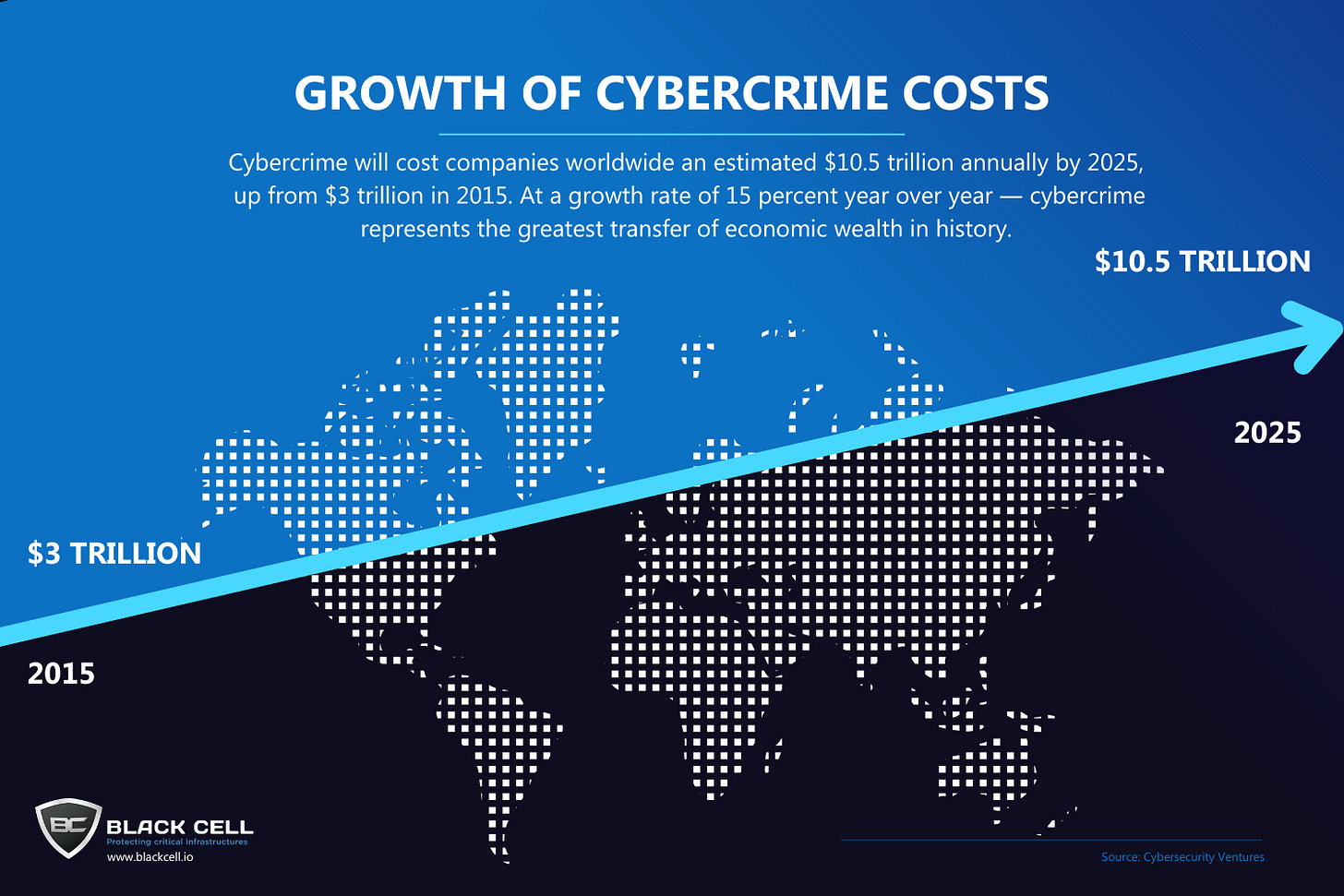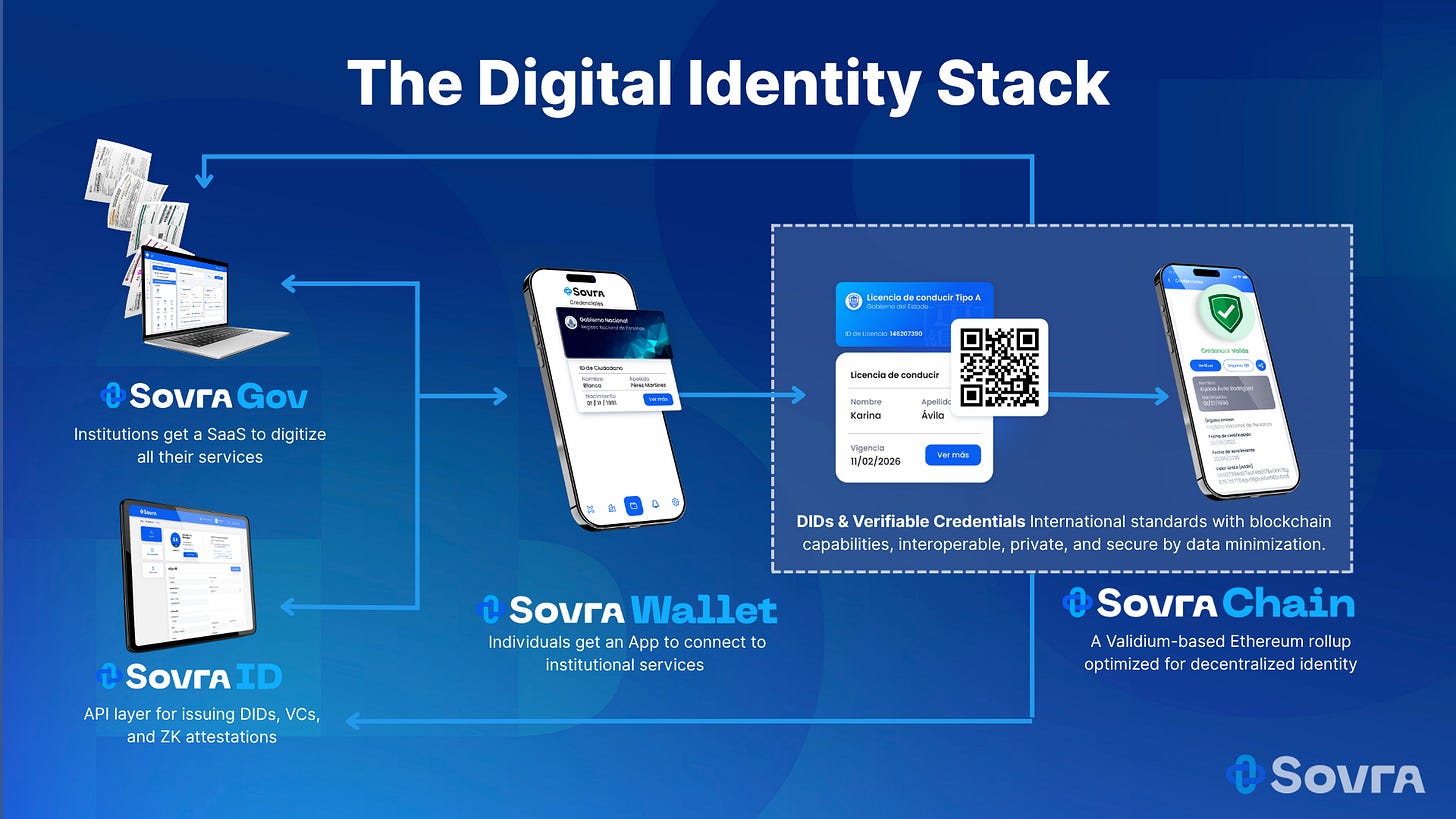The Digital Identity Stack
Sovra is where Web3 meets public infrastructure, designed to fix what matters most: identity, access, and institutional legitimacy.
Introduction: The Urgent Need for Digital Trust
As the world accelerates into full digital integration, trust infrastructure hasn’t kept pace. Cybercrime alone is predicted to cost the world $10.5 trillion annually by this year, growing 15% per year and representing the greatest transfer of economic wealth in history. If measured as a country, cybercrime would rank as the world’s third-largest economy.
At the same time, identity systems remain fragmented: slow, siloed, and vulnerable to breaches, fraud, and surveillance. We can transfer money globally in seconds, yet verifying identity across borders is still paper-based and friction-filled. Generative AI and deepfakes now blur truth itself, while regulations tighten and citizens demand greater control over their digital lives.
All these factors underscore a simple reality: the coming years represent a decade of digital trust, in which building secure, privacy-preserving, and user-centric digital identity solutions will be paramount for governments, businesses, and societies at large. To meet these demands, next-generation infrastructure is required: scalable, privacy-first, and sovereign by design.
Sovra: A New Approach to Digital Identity
Sovra makes digital identity easy. Through the Digital Identity Stack, Sovra enables verifiable credentials at scale for governments, institutions, and citizens — with strong guarantees of privacy and user sovereignty.
Rooted in self-sovereign identity (SSI), Sovra lets individuals own and control their data. Trust is established through cryptography and decentralized networks, not centralized authorities. Using open standards like Decentralized Identifiers (DIDs) and Verifiable Credentials (VCs), Sovra enables credentials — from IDs to diplomas — to be issued and instantly verified anywhere, all under user control.
Sovra’s approach is already live across Latin America. In Argentina and Mexico, over 8 million citizens have received on-chain verifiable credentials and access to digital public services. In Buenos Aires, the open-source protocol co-created by Sovra’s founders (QuarkID) is integrated into the city’s digital identity app, giving 3.6 million residents a decentralized digital ID anchored on blockchain. Citizens hold these credentials themselves and decide when to share them. Sovra builds on this pioneering work with a full stack of tools and infrastructure designed for national and cross-border use.
To power this, Sovra partners with leading blockchain teams. LambdaClass, with its Rust-based Ethereum client Ethrex, drives Sovra Chain’s performance. Aligned provides Rollup-as-a-Service and interoperability layers for compliance-grade privacy at scale.
The Sovra Digital Identity Stack: Components and Capabilities
Sovra’s platform is composed of several key components, together forming a “digital identity stack”, that address different layers of the digital identity challenge. Each component is designed to be modular yet interoperable, built on open standards, and focused on a specific set of users or functions:
Sovra Gov
A no-code workflow and credential issuance platform for governments and institutions. SovraGov allows public sector entities (or businesses) to quickly digitize public services and credentialing processes without needing to write blockchain code or smart contracts. Through a user-friendly interface, officials can define workflows (for example, an application for a driver’s license or a business registration), approve and issue verifiable credentials to citizens, and manage the life cycle of those credentials. This tool effectively modernizes government processes by replacing paper-based or siloed digital systems with a unified, standards-based credential platform, all while abstracting away the technical complexity of blockchain back.
Visit Sovra Gov suite to know more
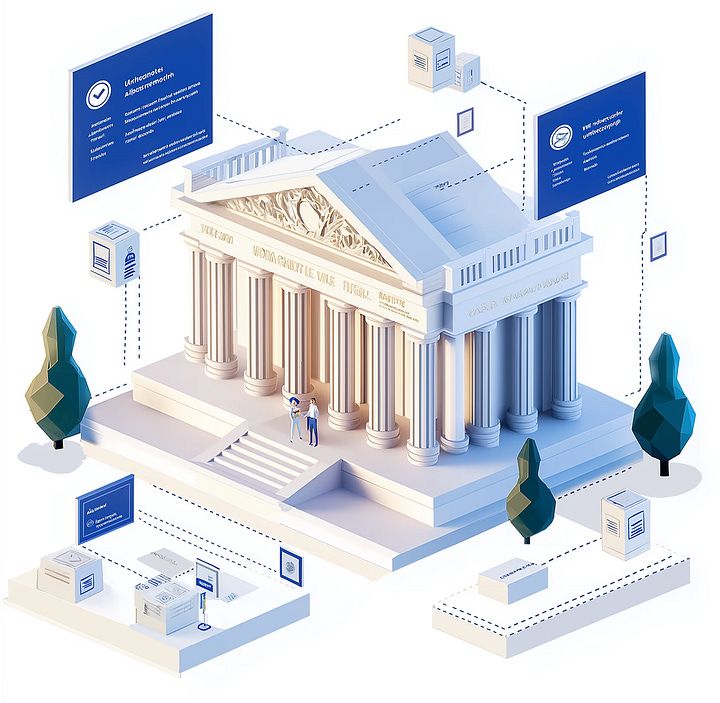
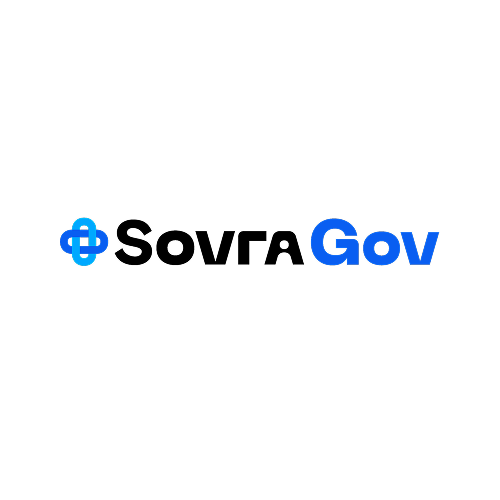
Sovra ID
A robust identity engine for DIDs and verifiable credentials. SovraID provides the APIs and underlying standards-based infrastructure to create, manage, and verify decentralized identifiers and credentials across ecosystems. It acts as the backbone for trust: ensuring that each credential issued can be cryptographically verified as authentic and unaltered, and that each Decentralized Identifier (DID) is resolvable and tied to a public-private key pair controlled by its owner. SovraID supports not only basic credentials but also advanced zero-knowledge (ZK) attestations, which allow someone to prove a statement about their identity without revealing underlying personal data. For instance, a ZK attestation could let a user prove “I am over 18” or “I have a valid driver’s license” to a service, without disclosing their actual birthdate or license document. By building on open protocols (such as the W3C DID standard and Verifiable Credentials Data Model), SovraID ensures interoperability – credentials issued via Sovra can be recognized across different wallets, platforms, or even countries’ systems that adhere to the same standards. This is crucial for scaling digital trust globally rather than creating new isolated silos.
Visit Sovra ID suite to know more
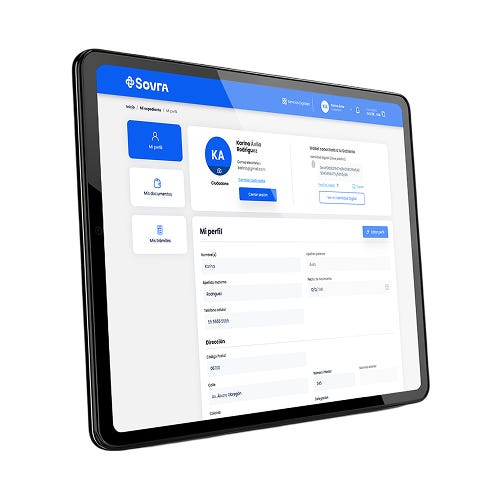
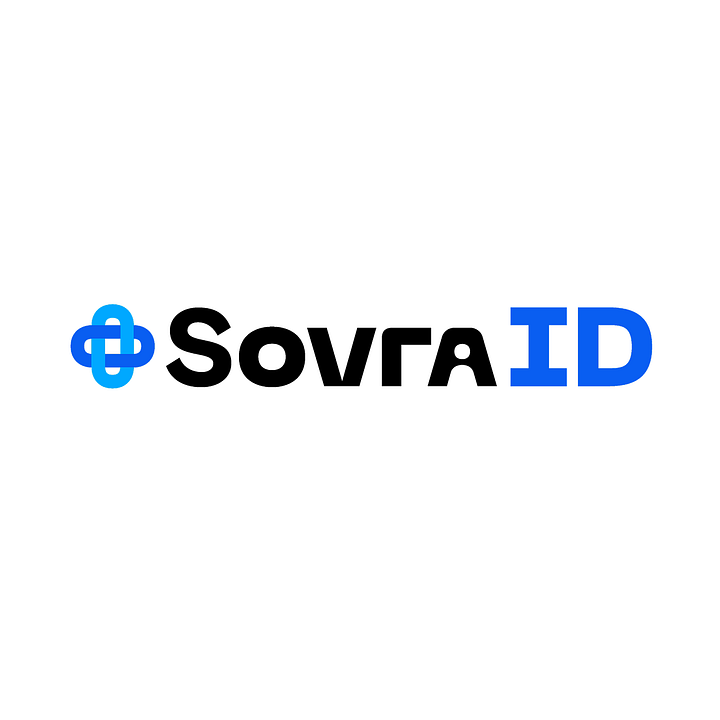
Sovra Wallet
A non-custodial digital identity wallet for citizens. SovraWallet is the user-facing app (on mobile or web) where individuals store their DIDs and credentials securely under their own control. Unlike centralized identity systems where a government or corporation holds your data, SovraWallet gives each user a set of cryptographic keys that unlock and manage their identity data. From this wallet, the user can receive credentials (e.g. a digital ID card issued by a government agency via SovraGov), and later present proofs of those credentials to service providers. Critically, SovraWallet is designed with privacy in mind: it enables selective disclosure and zero-knowledge proofs. The wallet does not custody user data on a central server; the user is the custodian of their identity, aligning with the core SSI principle of user sovereignty. This approach greatly reduces the risk of large-scale identity theft or privacy breaches since there is no trove of personal data sitting on a single server waiting to be hacked.
Visit Sovra Wallet suite to know more
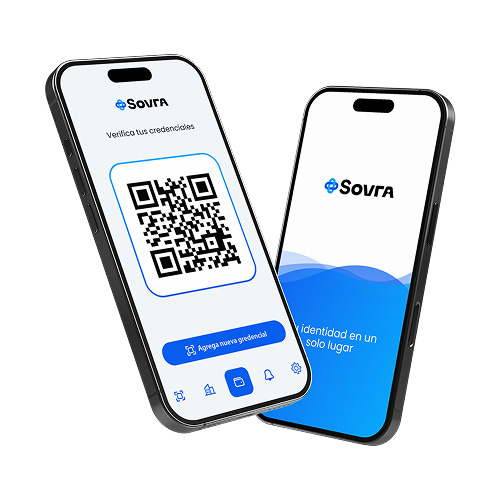
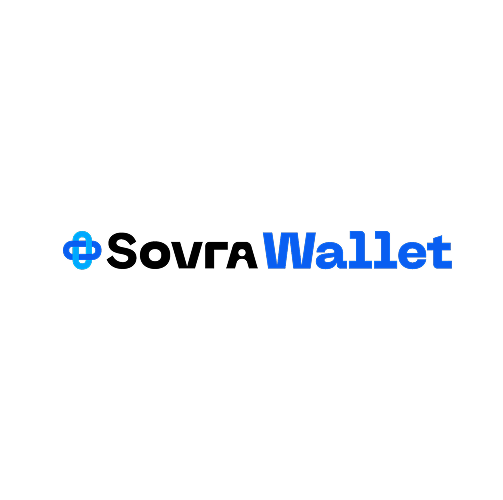
Sovra Chain
A high-performance Layer-2 blockchain dedicated to digital identity and trust. Built as a Validium-based Ethereum rollup, it combines zk-proof security with off-chain data storage for scalability and privacy. This design delivers Ethereum-grade integrity at lower cost and higher throughput — ideal for mass credential issuance and verification. Powered by Ethrex, Sovra Chain runs lean and fast, optimized for identity at scale. Personal data never touches the chain; only proofs and hashes do — making privacy the default. SovraChain is also composable and future-ready, interoperable across networks and integrating leading zero-knowledge provers from teams like Succinct Labs and Risc Zero. As the trust anchor of Sovra’s ecosystem, it ensures every identity action is verifiable, tamper-proof, and private by design.
Visit Sovra Chain suite to know more
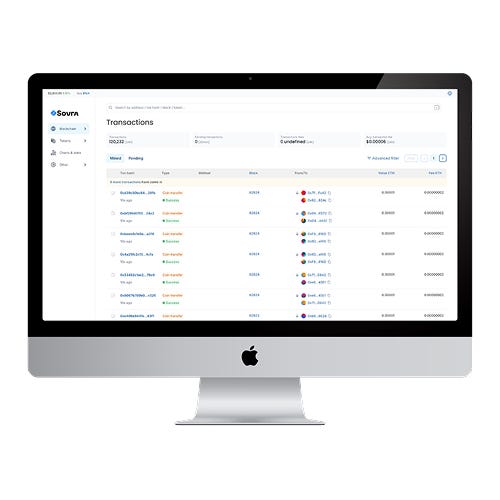
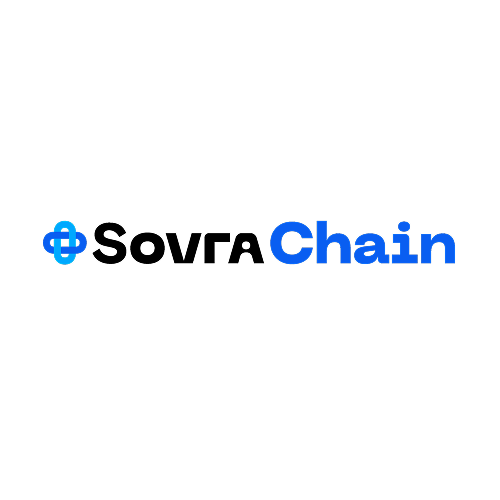
Conclusion: Decentralizing Trust for the Digital Age
Sovra’s Digital Identity Stack offers a practical, future-ready solution to one of the world’s most urgent challenges. By combining blockchain-grade security with user sovereignty and institutional credibility, Sovra replaces outdated identity systems with infrastructure that is:
Scalable — Layer-2 performance for mass adoption
Private — Zero-knowledge proofs and selective disclosure
Sovereign — Citizens control their own data, backed by open standards
Already empowering millions, Sovra is expanding into finance, cross-border services, and beyond. Its mission — designed for institutions, built for users, secured by Ethereum — ensures that digital identity is not just modernized, but reimagined as global public infrastructure.
The next decade will be defined by digital trust. Sovra shows how to build it.




